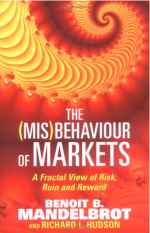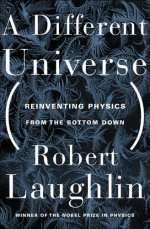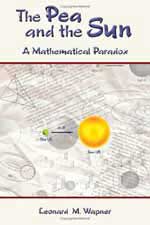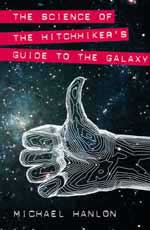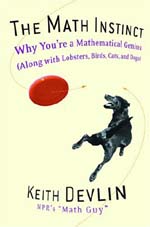Reviews and recommendations
'The equation that couldn't be solved'Mario Livio's new book tells the story of the elusive quintic equation and how, from the mysteries of this unsolvable puzzle, group theory was born. This branch of mathematics describes and defines symmetry, and at the core of the book is a strong sense of just how much of our behaviour and appreciation of the world around us depends on our ability to perceive symmetrical proportions.
'Flatland'This is a new edition of an old classic. Abbott wrote this beautiful tale over a hundred years ago under the pseudonym A Square. It still is one of the best introductions to a mathematical world of higher dimensions, and it's an amazingly imaginative social satire, too.
'Coincidences, chaos, and all that math jazz'Edward Burger and Michael Starbird are both Professors of mathematics and have won numerous teaching and writing awards for their work. Burger has even performed stand-up comedy in night-clubs and is no stranger to appearing on television and radio broadcasts. In their company the reader is clearly in safe hands and these achievements are reflected in the quality of the book. The text is also written with a charm that is lamentably rare in maths literature.
'The (mis)behaviour of markets'Throughout history, millions have been won and lost on the stock market: lost in the Wall Street Crash of 1929, won in the Dot-Com Boom of the 1990s. We all know that playing on the markets is a dicey game, but after decades of research we now have a better understanding of the way markets work. Or do we? According to Benoît Mandelbrot, modern financial theory is based on unrealistic assumptions that need a complete re-think.
'A different universe'Cartoons can help to bring down governments, but can they help to revolutionise science? This seems to be the hope of Robert Laughlin, whose book on the exciting field of emergence is littered with his hand-drawn cartoons. His Nobel Prize in physics has given him the confidence to share his art and to hope that his cartoons help to explain how science can be revolutionised, or "re-invented". But what is this Different Universe, to what extent is it a reinvention, and how well does Laughlin set out his case?
'Meta math!''If I had to describe this book using just one word, then this word would be "passionate". This may be surprising seeing that we are dealing with maths, or, to be precise, metamaths, the study of mathematical truth. But this book is as much about the author's love for his subject as it is about the maths itself, and this love shines through on every page. Chaitin doesn't just describe his mathematical ideas to you, he also tells you where he was when he had them, how it felt having them, and about the mysterious creative processes that are involved.
'How to take a penalty'Have you ever wondered what shape a football is? No, it is not a sphere - it is far closer to something called a truncated icosahedron, also known as a "buckyball". It consists of 12 black pentagons and 20 white hexagons and is about the most effective way of creating something nearly spherical out of flat panels. Curious sporting-related mathematical facts like this can be found throughout Eastaway and Haigh's book "How to take a penalty, the hidden mathematics of sport".
'The pea and the sun'The topic of this book - the Banach-Tarski Paradox - is a result so strange and counterintuitive that the author says he didn't believe it when he first saw it. The "paradox" - in fact an impeccable mathematical theorem - says that a small sphere, for example a pea, can be cut into as few as five pieces which can then be reassembled so as to make a far bigger sphere, for example the sun.
'The science of the Hitchhiker's Guide'Over the last few years there has been a rush of 'The Science of ...' books - popular science titles written to tie in with the recent release of a popular film or book. These include: The Science of The X-files, The Science of Star Wars, The Science of Superheroes, The Science of Supervillains, The Science of Discworld (volumes I, II and III), and The Science of Harry Potter. And into this fray now strides Michael Hanlon with his own offering to the genre.
'The math instinct'Keith Devlin is a well-known populariser of mathematics, author of many books and appearing regularly on American radio as "The Math Guy" In this latest offering he walks us through the astounding mathematical capabilities of both plants and animals, and on to the abstract abilities of humans.
'Britain in numbers'The author of this book is Statistics Editor of the Financial Times, the only newspaper in Britain to employ someone with this job title. He is therefore uniquely well placed to write this fascinating and timely book, which sets out to provide a fact-based picture of the society we live in.
'Luck, logic and white lies'Anyone who has ever tried to analyse a game mathematically knows that things can get very complicated very quickly. In a game like chess, the number of possibilities for just the first three moves is already enormous, while, in poker, the roles played by chance, strategy and psychology seem to be mysteriously interlinked.



